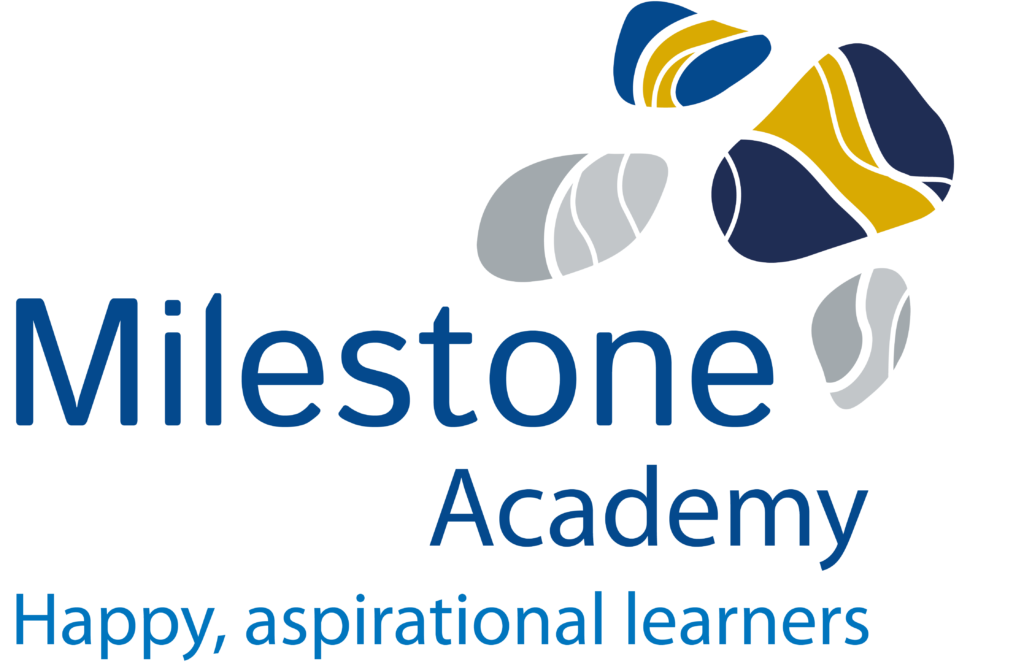At Milestone Academy, we want every child to be happy and aspirational learners of Science, and to be eager to achieve their very best in order to fulfil their considerable potential. We firmly believe that the recipe for success is high-quality first-wave teaching in Science, which is central to the life of our safe, supportive and curious academy environment.
Through teaching science we aim to provide our students with the foundations to understand the world around them and to develop functional skills for their individual developmental stage. At Milestone Academy, science is about enabling our pupils to experience and observe the natural and humanly-constructed world using the National Curriculum as a basis of Transdisciplinary Themes and Unit Cycles. Students are encouraged to be curious, manipulate, participate and ask questions about what they notice and observe. Students are encouraged to develop their understanding of scientific ideas by using different types of inquiry to answer their own questions through actions and communication appropriate to the individual’s preferred mode. Exploration is a vital part of a student’s learning, so the teaching and learning of science is supported through the use of firsthand practical experiences whenever possible for consolidation, and to aid the long-term retention of the learning of skills and knowledge as appropriate for the individual learner.
Science is taught within each phase using the National Curriculum as the basis for development. Where appropriate, science knowledge is taught alongside the ‘Working Scientifically’ skills which form the basis of exploration in science teaching and learning.
- As students progress, they build upon the learning from prior years, developing depth of understanding and progression of skills.
- Teachers promote enjoyment and foster interest in the scientific disciplines; Biology, Chemistry and Physics and do so as they are integrated into each other and into other learning where appropriate.
- Children develop their working scientifically skills to explore, question, predict, plan, carry out investigations and observations as well as conclude their findings as appropriate to the individual learner.
- Children present their findings and learning using science specific language, observations and diagrams, as appropriate to their individual needs and skills
- The vehicles which drive learning throughout the term are the central idea and associated lines of inquiry. Therefore, science is taught through these vehicles where possible.
- Effective modelling by teachers ensures that children are able to achieve their learning intention, with misconceptions addressed within it.
- Through the use of a range of assessment tools, adaptive teaching is facilitated by teachers, to ensure that each student can access the Science curriculum.
- Students are regularly given the opportunity for self or peer assessment, which is then used to inform planning, preparation, differentiation and address misconceptions within that lesson, as appropriate to the individual.
- The subject leader for Science will meet the senior leadership team and representatives from the Trust on a regular basis to evaluate provision in order to ensure that teaching and learning in Science is highly effective.
- Effective CPD and standardisation opportunities are available to staff to ensure high levels of confidence and knowledge are maintained.
The impact of this curriculum design will lead to outstanding progress over time, across phases, relative to a child’s individual starting point and their individual progression of skills. Children will be able to remember more and do more. By integrating the ‘Working Scientifically’ skills across all learning, our Science curriculum will lead pupils to be enthusiastic science learners, who are able to safely engage and interact with the world around them. We want to empower our children to understand they have the capability to actively engage with the world they inhabit and that they can take in information and have meaningful interactions with the natural world. This is evidenced in a range of ways, including pupil voice, their work and their overwhelming enjoyment for science.
Each lesson will include live marking (as per the Feedback Policy). Homework is not formally set in Science but students are encouraged to use the skills they develop for exploration and analysis in all of their learning. Spiral learning is a key focus of all formative and summative assessment with teachers actively marking work in lessons in order to identify misconceptions early.
With our firm belief that knowledge is transferable, our pupils are given every opportunity to participate in a wide range of learning experiences beyond their classroom.
Milestone Academy has constructed a science curriculum that is designed to give all pupils, particularly the disadvantaged, the knowledge and cultural capital they need to succeed in life.


